Beiträge
-
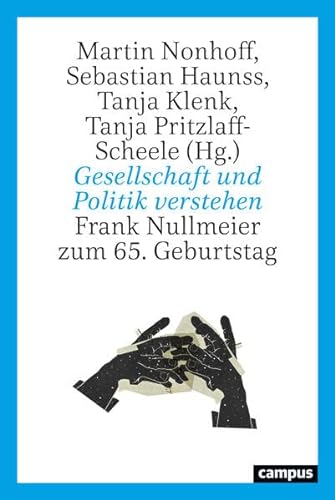 Radikale Demokratietheorie als Gesellschaftstheorie
Radikale Demokratietheorie als Gesellschaftstheorie
-
 Making a Theme Audible. Imparting Non-Discursive Knowledge in Natural Philosophy by Means of Poetry and Aphorism
Making a Theme Audible. Imparting Non-Discursive Knowledge in Natural Philosophy by Means of Poetry and AphorismDieser Aufsatz beschäftigt sich mit Poesie als einem Instrument zur Vermittlung von Wissen in der Naturphilosophie. Es wird der erkenntnistheoretische und kulturelle Hintergrund erörtert, vor dem frühgriechische Denker wie Parmenides und Empedokles in Versen schrieben, und es wird untersucht, warum die Versform als bevorzugtes Mittel zur Vermittlung wichtiger und oft nicht-diskursiver Erkenntnisse über die Natur angesehen wurde. Es geht insgesamt darum, wie Poesie „ein philosophisches Thema hörbar“ machen sollte, um eine Einsicht hervorzurufen, die ein großes Erfahrungsfeld strukturiert. Sehr viel später finden ähnliche Überzeugungen eine (letzte) Blütezeit in Goethes Versuch, ein Naturgedicht im lukrezischen Sinne zu schreiben. Auch wenn neue Erkenntnisse vor allem aus der klassischen deutschen Philosophie auf Goethe einwirkten, zeigen seine Beweggründe, weiterhin Naturdichtung betreiben zu wollen, auffallende Kontinuitäten zu den Denkern der Antike. Der Aufsatz endet mit einer kurzen Darstellung späterer Versuche, weiterhin „philosophische Themen hörbar“ zu machen, während gleichzeitig die Fragmentierung von Wissen zunimmt.
-
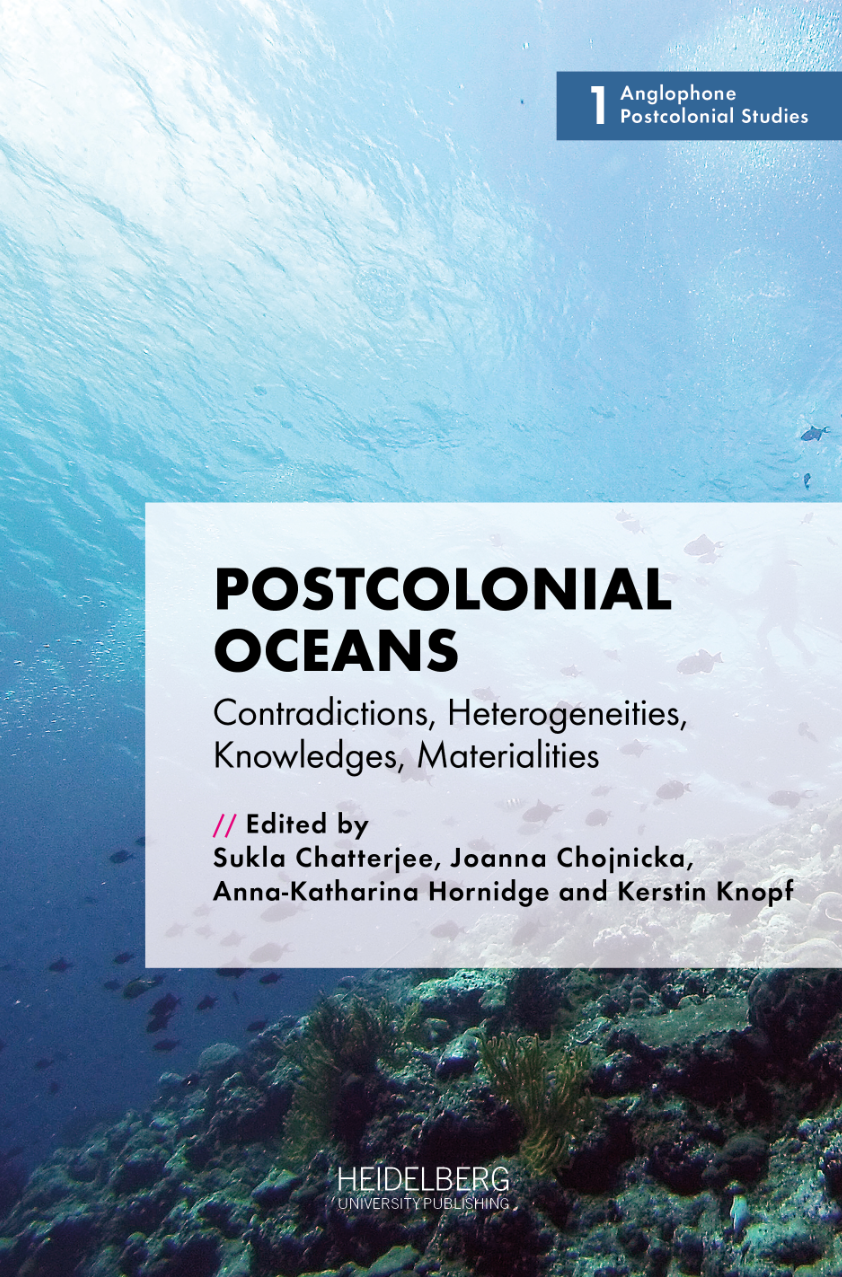 The Colonial Making of Bremen’s Peri-Urban Port Area
The Colonial Making of Bremen’s Peri-Urban Port Area
-
 Introduction. Postcolonial Oceans. Contradictions, Heterogeneities, Knowledges, Materialities
Introduction. Postcolonial Oceans. Contradictions, Heterogeneities, Knowledges, Materialities
-
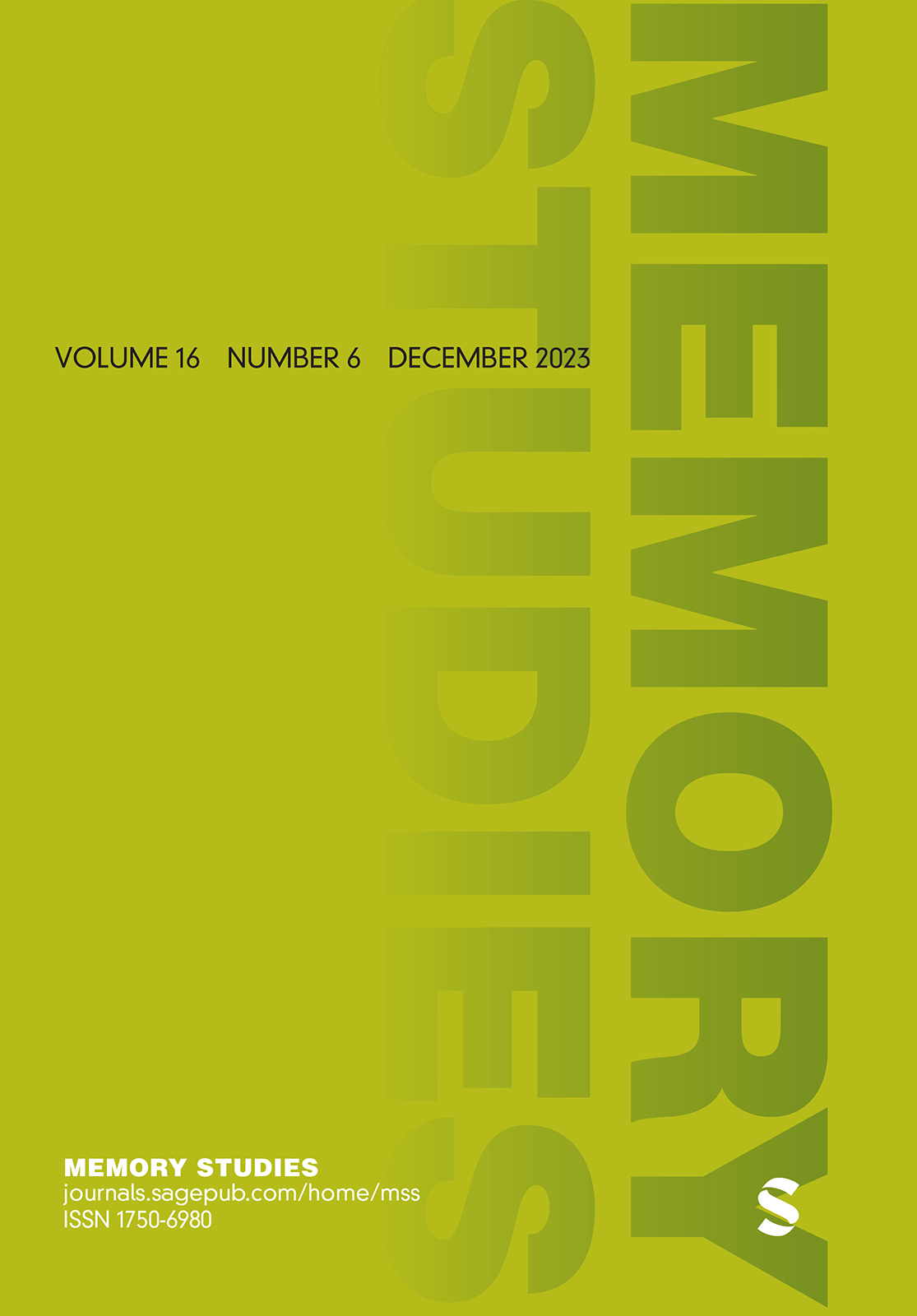 Why Collective Memory can never be Pluriversal. A Case for Contradiction and Abolitionist Thinking in Memory Studies
Why Collective Memory can never be Pluriversal. A Case for Contradiction and Abolitionist Thinking in Memory StudiesBringing together memory studies with the emerging field of contradiction studies, in this article, I suggest the need for an alternative way of thinking about collective memory by juxtaposing the ideal of wholeness that necessarily underlies any group’s identity with that of the inevitable contradiction of the plurivers. I discuss the power of the Western narrative order in regard to the Haitian Revolution and examples of mnemonic disharmony in contemporary Germany and seek to illuminate the epistemic violence constitutive of this narrative order. The article therefore interrogates memory study’s epistemological foundation and the practices in which these underpinnings result. The aim is to highlight the potential of contradiction in an attempt to pluriversify responses to the past as well as future visions for the worlds we live in. Special attention is paid to the question of what it is we hope for when attempting to (scholarly) contribute to making collective memory more inclusive, and where the limitations of this might lie. The purpose of my contribution, then, is to explore the tacit imperative of harmony that often remains unchallenged in memory studies, and to propose a shift in focus, from the ways in which memory might help us understand (e.g., current clashes of identities), toward a research agenda that is considerate of its own entanglements with power, yet, at the same time, lives up to its potential to contribute to transformation.
-
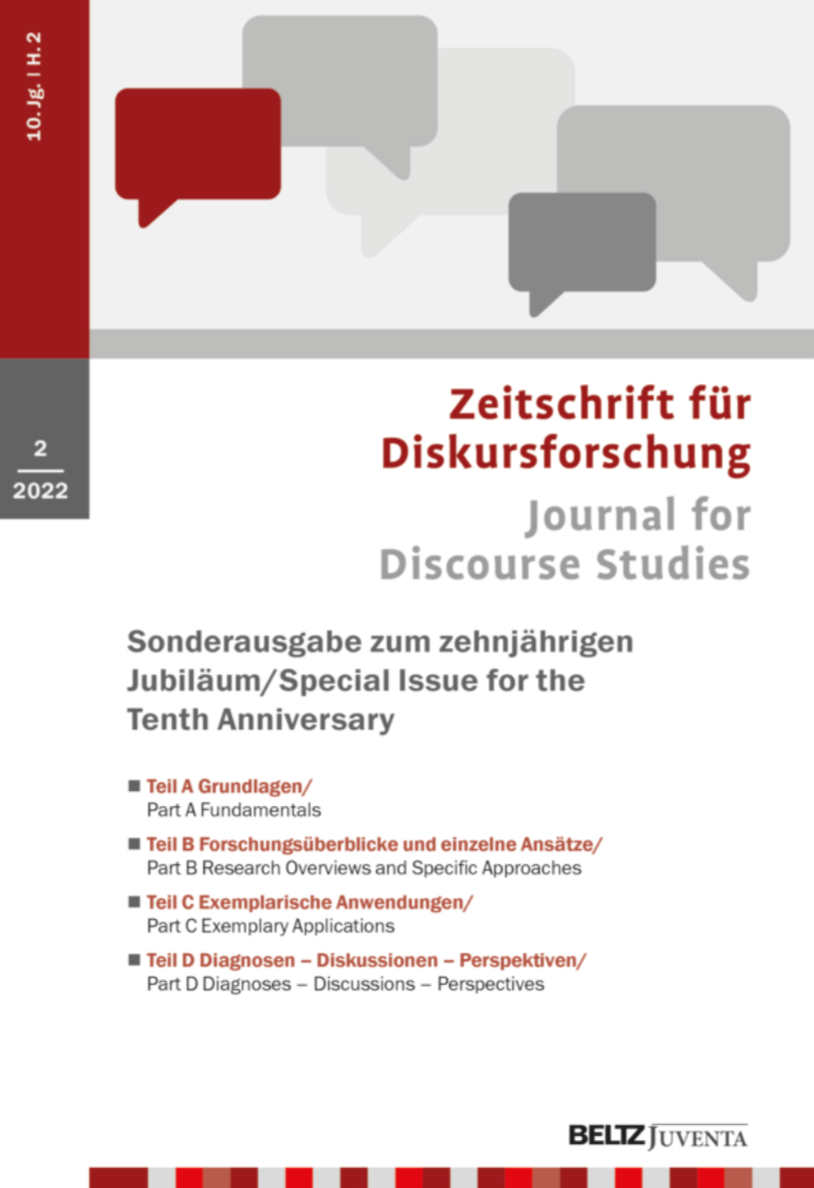 Mythos Zuhören – Bemerkungen zur Diskursphänomenologie gerichteter Aufmerksamkeit
Mythos Zuhören – Bemerkungen zur Diskursphänomenologie gerichteter AufmerksamkeitAusgehend von der Omnipräsenz beschönigender Rede über Zuhören fragt der Essay nach dem Beziehungsgeflecht von Zuhören und Diskurs. Einem verbreiteten Mythos, in dem Zuhören isoliert als replikative Handlung verstanden wird und Unwägbarkeiten des Zuhörens systematisch überdeckt sind, wird die Annahme gegenübergestellt, dass Zuhören Sprache im Widerspruch ist und als solche konstitutiv für Diskurse und vice versa. Gefragt wird nach Möglichkeiten einer Soziolinguistik des Zuhörens und insbesondere nach einer konzeptionellen Einordnung des Zuhörens im Spannungsfeld von Positivität der Rede und Intentionalität des Zuhörens. Ich spreche von Diskursphänomenologie, ohne zu übersehen, dass damit eine auch wissenschaftshistorische Gegenüberstellung von Diskursanalyse und Phänomenologie aufgebrochen wird.
-
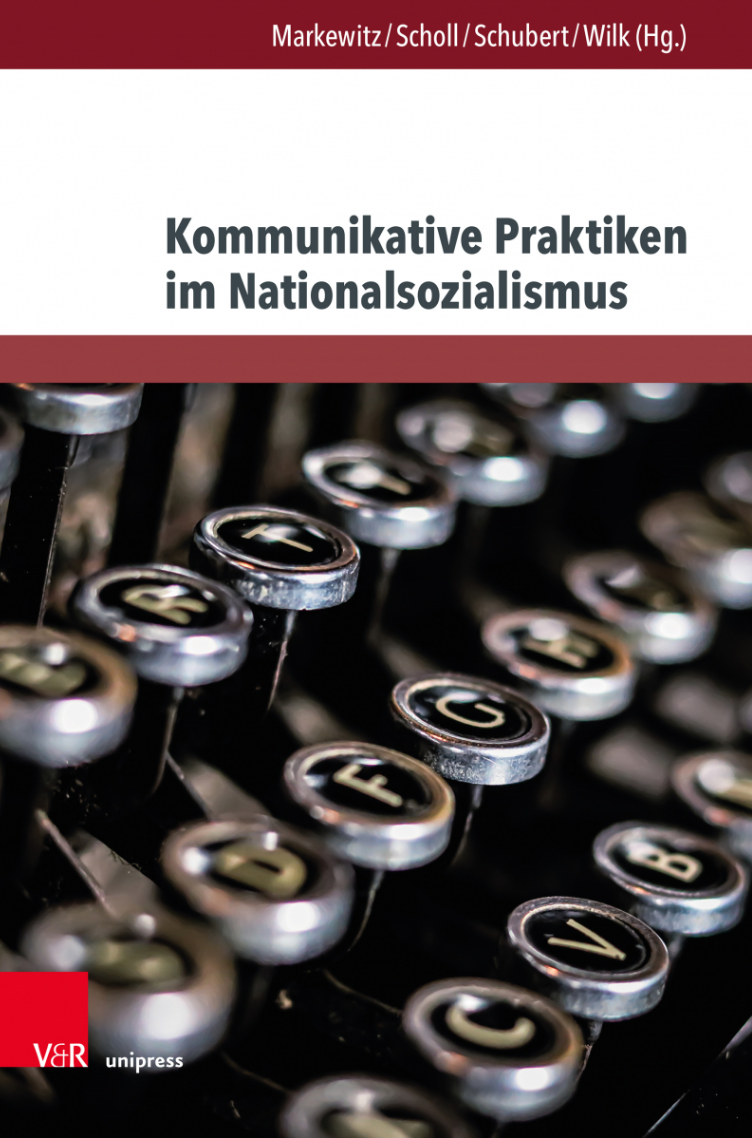 Multidirektionale Lexik in der Diskursgeschichte des 20. Jahrhunderts
Multidirektionale Lexik in der Diskursgeschichte des 20. Jahrhunderts
-
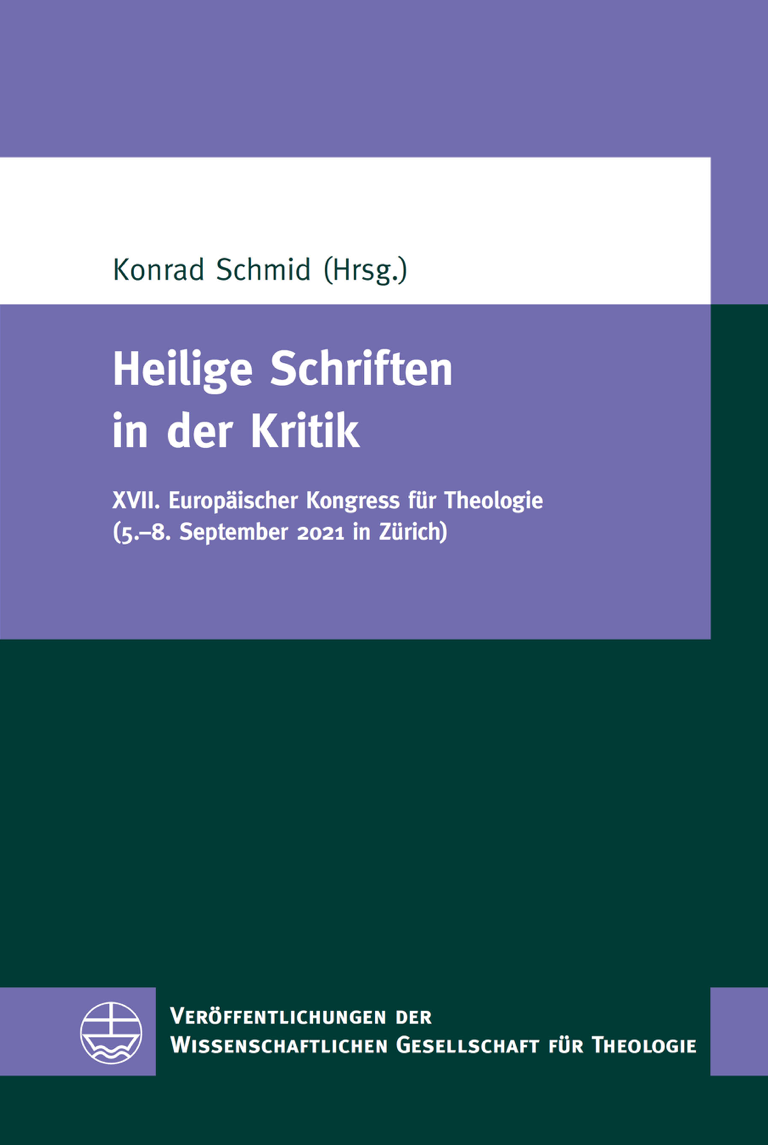 Aristokratie der Buchreligionen? Heilige Schriften aus religionswissenschaftlicher Perspektive
Aristokratie der Buchreligionen? Heilige Schriften aus religionswissenschaftlicher Perspektive
-
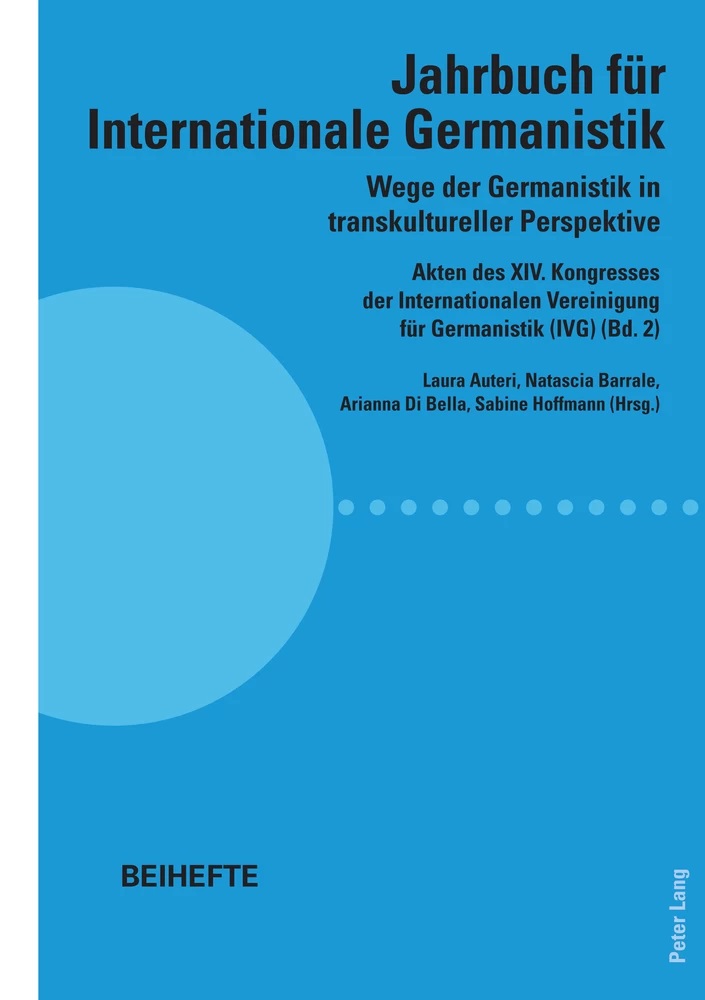 Digitale Räume als Aushandlungsort für Zentralität und Marginalität
Digitale Räume als Aushandlungsort für Zentralität und Marginalität
-
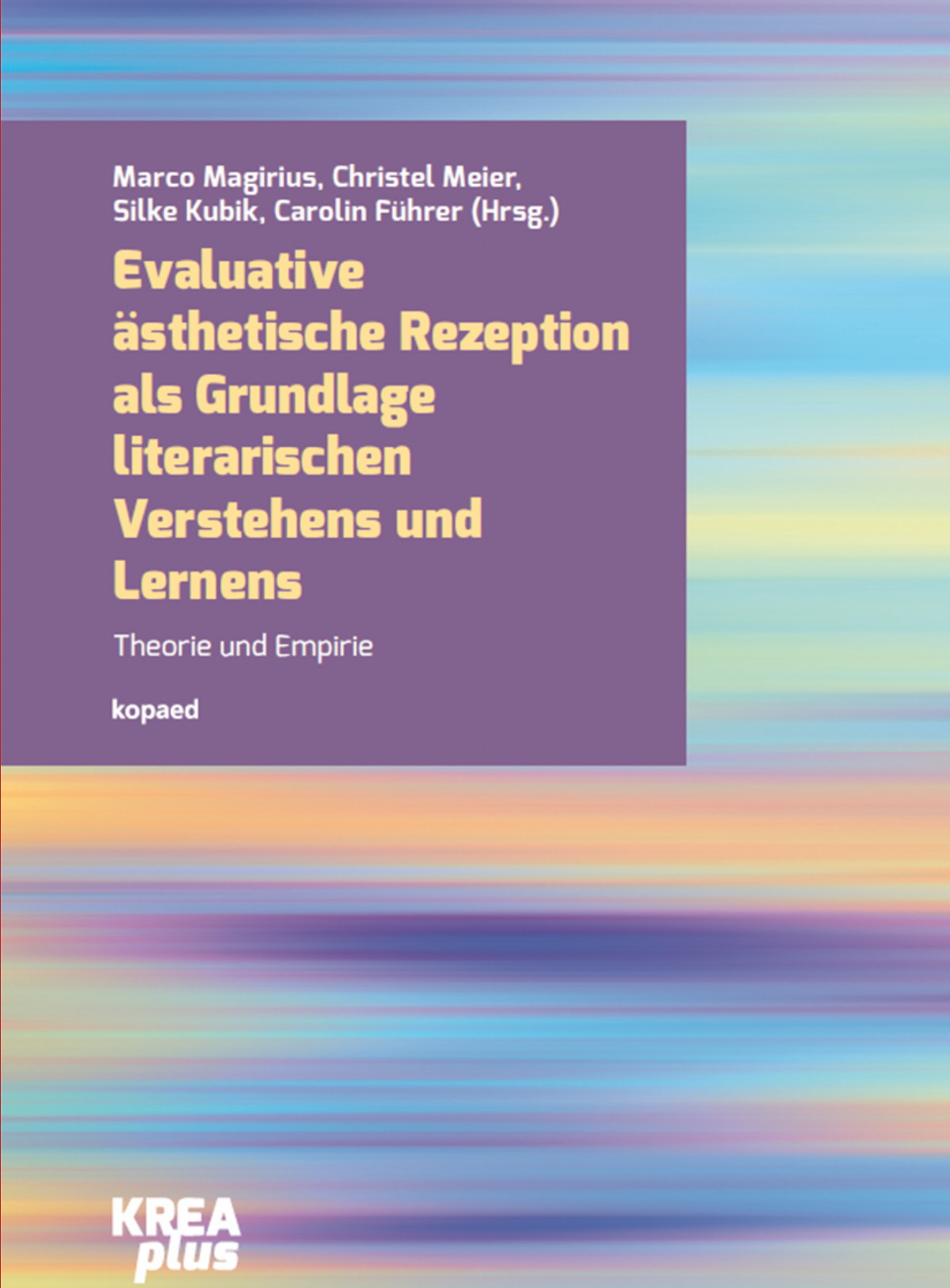 Gänsehaut, Liebe und Langeweile. Sprachliche Konstitution von Emotionen in Laienbuchrezensionen aus dem Schullektürekanon
Gänsehaut, Liebe und Langeweile. Sprachliche Konstitution von Emotionen in Laienbuchrezensionen aus dem Schullektürekanon
-
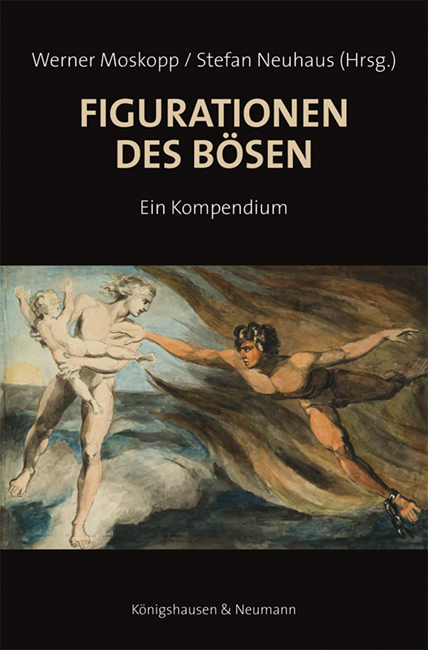 Hagen von Tronje: Vom Antagonist zum Bösewicht zum Antiheld. Überlegungen zur diachronen Entwicklung und Rezeption einer Antagonistenfigur
Hagen von Tronje: Vom Antagonist zum Bösewicht zum Antiheld. Überlegungen zur diachronen Entwicklung und Rezeption einer Antagonistenfigur
-
 Die Region Bremen. Herausforderungen der regionalen Verflechtung der Stadt Bremen mit ihrem niedersächsischen Umland
Die Region Bremen. Herausforderungen der regionalen Verflechtung der Stadt Bremen mit ihrem niedersächsischen Umland
-
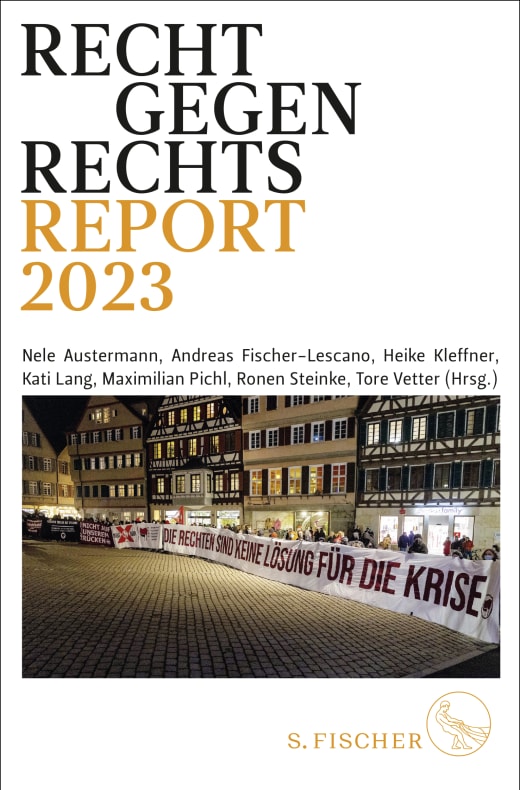 Babycaust? Keine Volksverhetzung! Die deutsche Justiz versagt bei der Bekämpfung von Holocaustverharmlosung und Aufstachelung zum Hass
Babycaust? Keine Volksverhetzung! Die deutsche Justiz versagt bei der Bekämpfung von Holocaustverharmlosung und Aufstachelung zum Hass
-
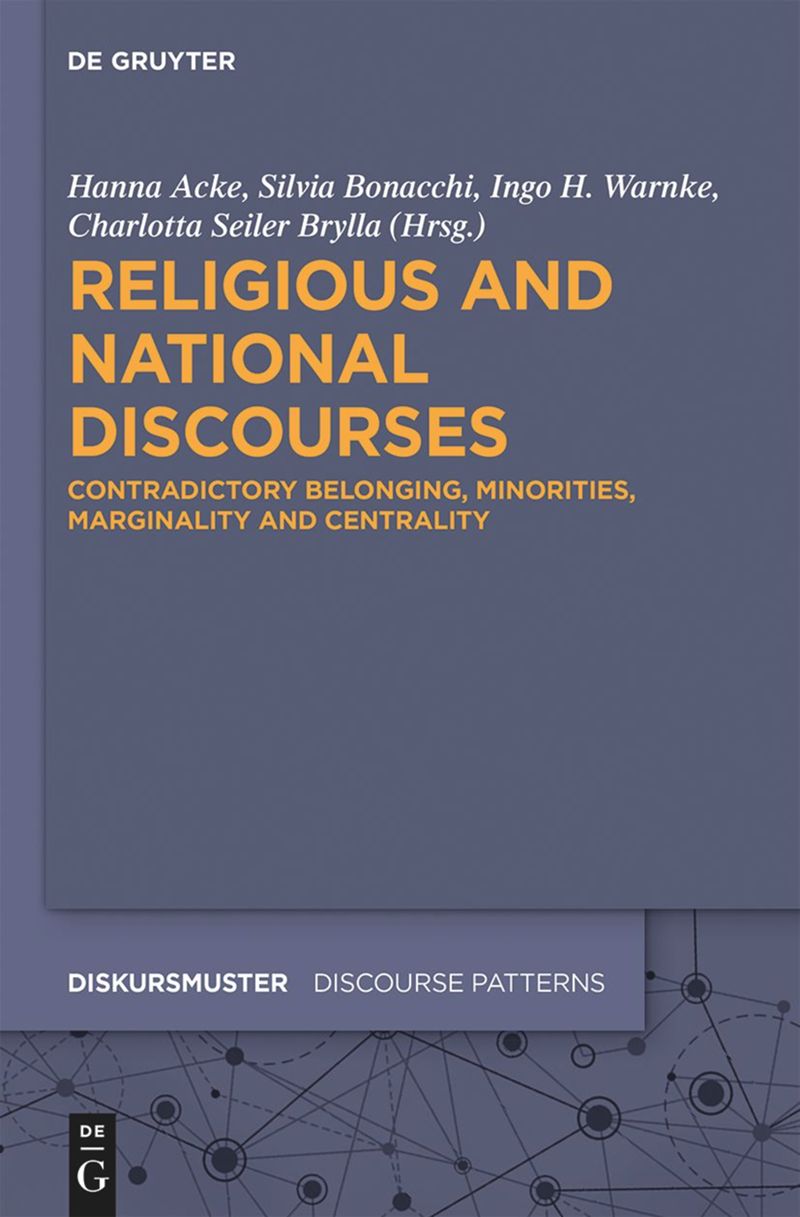 Minorities and Majorities, Marginality and Centrality. An Introduction
Minorities and Majorities, Marginality and Centrality. An Introduction
-
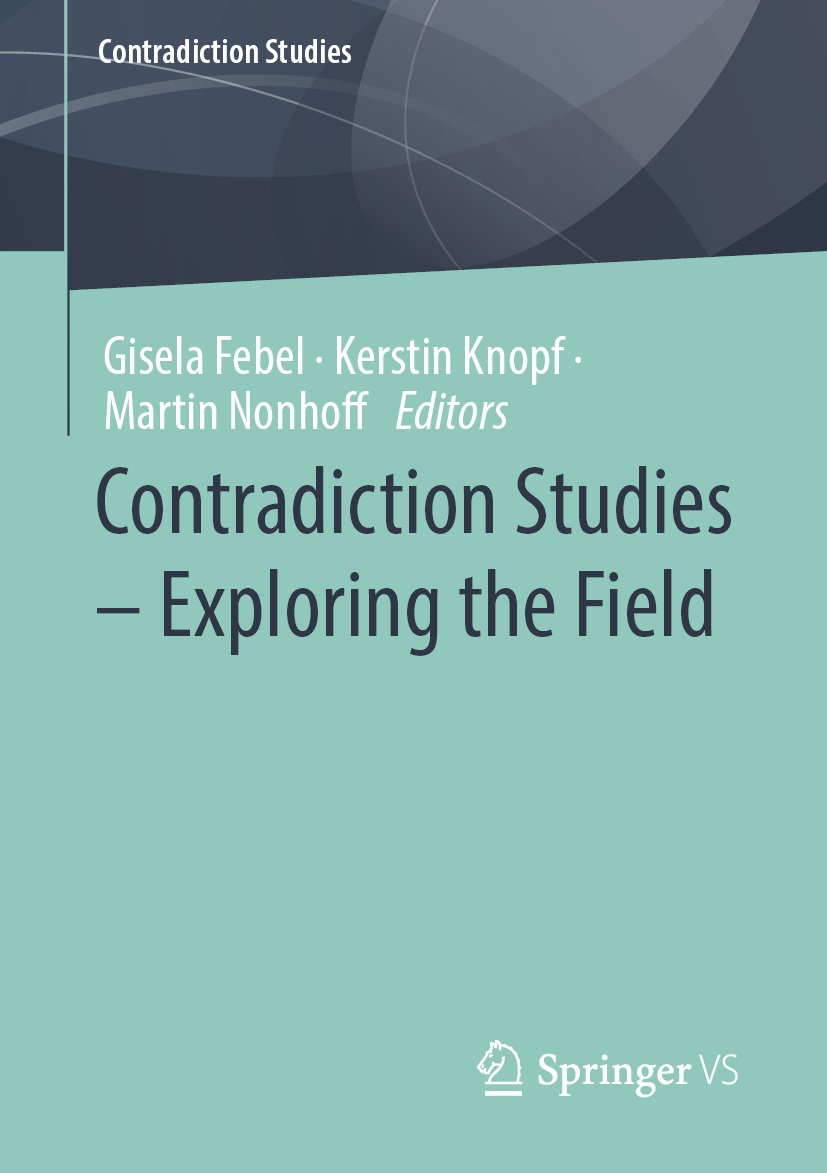 Contradiction Studies – Exploring the Field. An Introduction
Contradiction Studies – Exploring the Field. An IntroductionSince antiquity in Greece, the Law of Non-Contradiction (LNC) is considered to be the foundation of all philosophy. As Aristotle maintains in Metaphysics, “the same attribute cannot at the same time belong and not belong to the same thing and in the same respect” (1005b, 19–23).
-
 Widerspruchsresponsive Nachhaltigkeit
Widerspruchsresponsive NachhaltigkeitVerfassungsblogbeitrag: Das Freihandelsabkommen der EU mit Neuseeland verpasst die Etablierung eines kritischen Nachhaltigkeitsbegriffs.
-
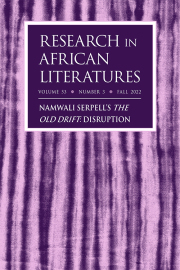 State of the Planet. Homi Bhabha and Namwali Serpell in Conversation
State of the Planet. Homi Bhabha and Namwali Serpell in ConversationAfter explaining the rationale for bringing the author of The Old Drift, Namwali Serpell, and critical theorist Homi Bhabha into conversation, this interview with both of them explores some of the key themes of Serpell’s novel in relation to its wider geopolitical and historical context. Beginning with how we can understand the state of the planet in the present historical moment, the discussion expands to explore the broad context of more themes in the novel, which includes the place of gender and sexual politics, a global pandemic in a time of national and financial closures, cosmopolitanism, the space race and reverberations of the Cold War in the present, and the continued relevance, if any, of postcolonial theory, technology, revolution, and futurity.
-
 Agency and Incentives of Diasporic Political Influencers on Facebook Malawi
Agency and Incentives of Diasporic Political Influencers on Facebook MalawiThis article examines the agency and incentives that drive the activism of diasporic political influencers on “Facebook Malawi,” an online imagined political community. In their seminal work on “social media dissidents” and “social media self-made activists” in the Global South, Matsilele and Sharra demonstrate that social media activists engage with different strategies to initiate movements, mobilize citizens, and create their brands in strong opposition to authoritarian regimes which repositions them as freedom fighters in the eyes of the masses and enemies of the state. Correspondingly, we frame diasporic political influencers as actors aided by digital technologies who engage in “long-distance nationalism” on Facebook against authoritarianism in the homeland. We deploy a qualitative mixed methods approach to analyze Facebook data of two diasporic political influencers, Onjezani Kenani and Manes Winnie Hale, who gave informed consent to use their Facebook data generated in 2018 and 2021, a period preceding and following the 2019 Malawi tripartite elections. A thematic analysis of 250 Facebook posts and interview data with the two influencers illustrates how they exercise their agency in their quest for a vision of a better Malawi while navigating a complex and ambivalent web of online and offline threats, incentives, and interests. Implicated in the political communication and mobilization of the two are different strategies that include verbal inventiveness, trolling, and exposing. The article also shows how the concept of long-distance nationalism needs to be adapted in studying diasporic political influencers.
-
 Paradoxien des Auditiven? Ambiguitäten und Diskrepanzen beim Hören und in der Musik
Paradoxien des Auditiven? Ambiguitäten und Diskrepanzen beim Hören und in der MusikIn der Psychologie der Musik und der auditorischen Grundlagenforschung wird von „Paradoxien des Hörens“ beziehungsweise „musikalischen Paradoxien“ gesprochen (Deutsch 1986, 275–280; Utz 2015, 22–52; Deutsch 1995). Aber können Höreindrücke wirklich paradox sein? Was sollte es genau heißen, „Paradoxien zu hören“ oder gar „paradox zu hören“? Wir werden dieser Frage im Folgenden nachgehen und dabei zunächst den Begriff der Paradoxie für den gegenwärtigen Kontext schärfen – n ämlich im Sinne einer Ambiguität und einer Diskrepanz. Anschließend erarbeiten wir dazu eine Typologie, die zugleich auch die grundlegende Bedeutung aufzeigt, die insbesondere Ambiguitäten für die Musik – genauer: für den anhaltenden Reiz von Musikstücken – haben.
-
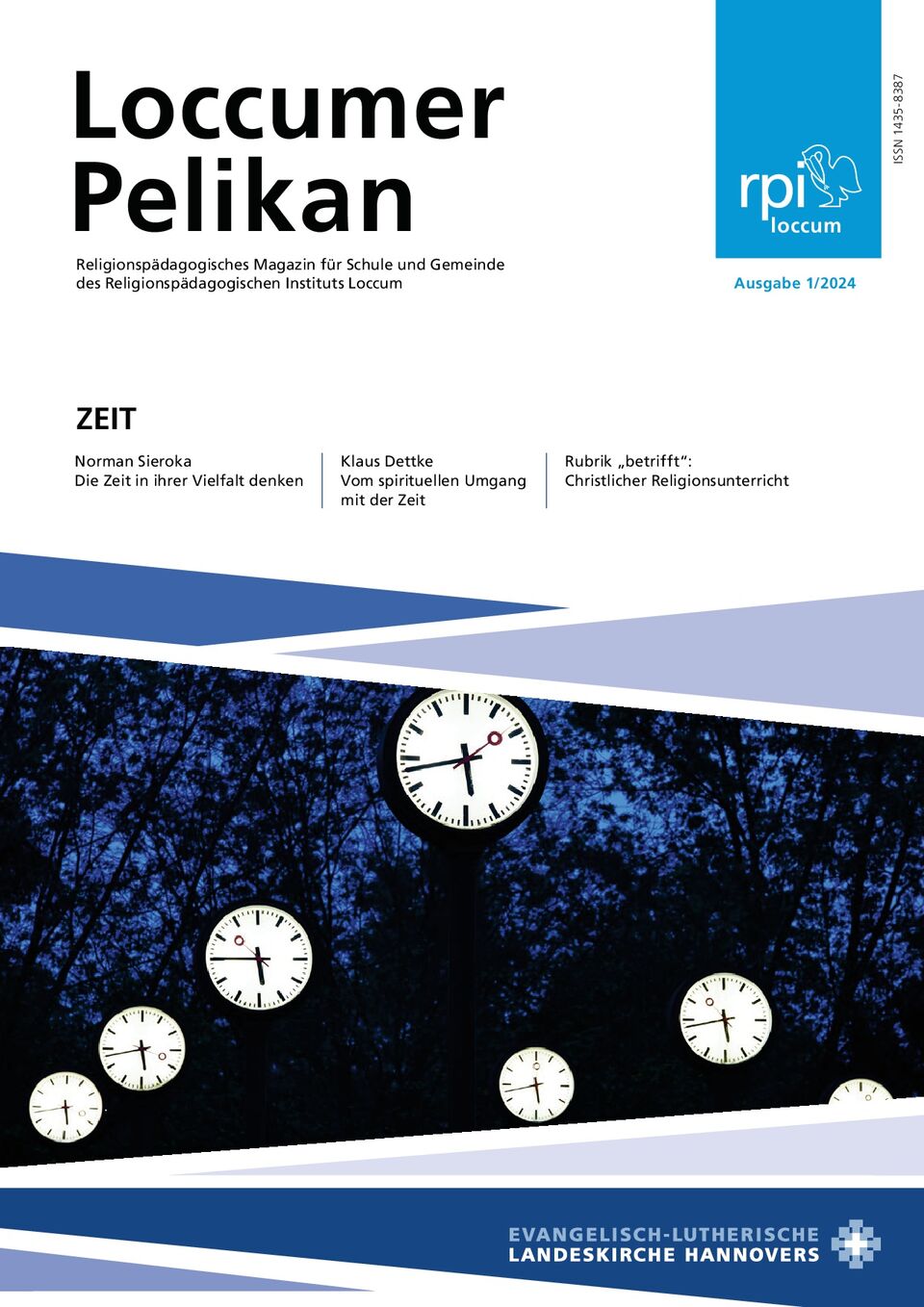 Die Zeit in ihrer Vielfalt denken – Anmerkungen aus philosophischer Perspektive
Die Zeit in ihrer Vielfalt denken – Anmerkungen aus philosophischer PerspektiveCorona-Infektionen, Kindheitserinnerungen, Präsidentschaftswahlen, Lawinenabgänge: Alles, was wir erfahren und erleben, und sämtliche äußeren Geschehnisse können zeitlich – gemäß ihrem Nacheinander – angeordnet werden. Zeit ist also ein Ordnungsparameter, oder eine Dimension, von Ereignissen. Was Zeit außerdem noch ist, darüber herrscht Uneinigkeit auf dem „Kampfplatz ewiger Streitigkeiten“ – wie Kant die Philosophie (genauer: die Metaphysik) einst nannte2: Ist Zeit relativ oder absolut? Ist sie kontinuierlich oder diskret? Ist sie eine eigene Substanz oder konstituiert sie sich durch Beziehungen zwischen Ereignissen?3